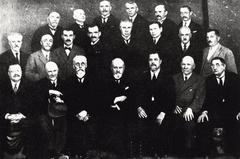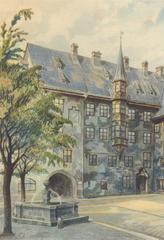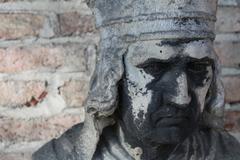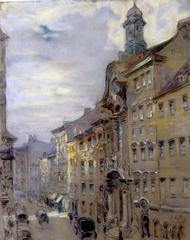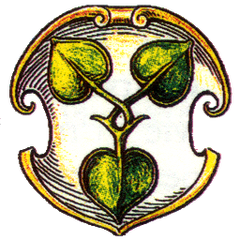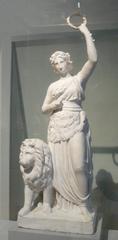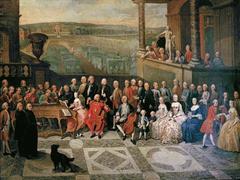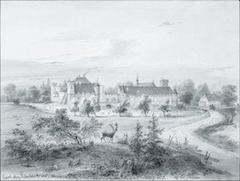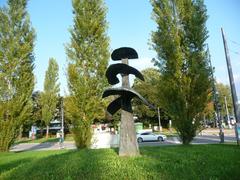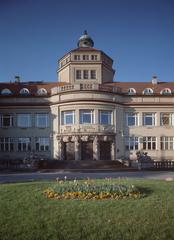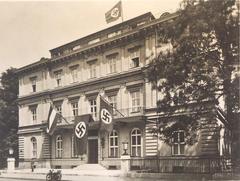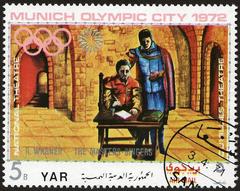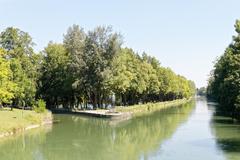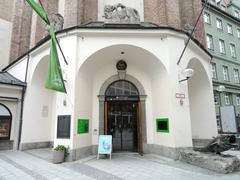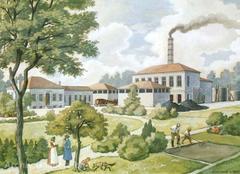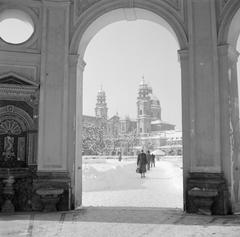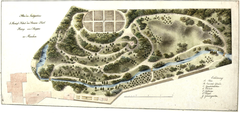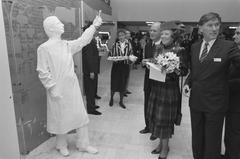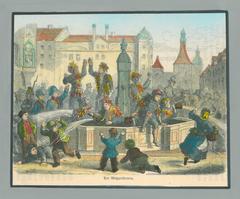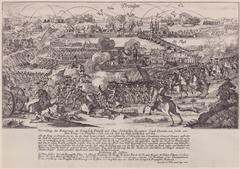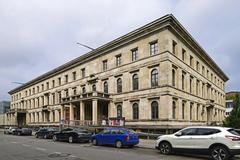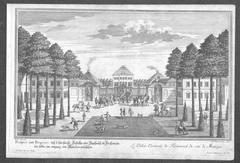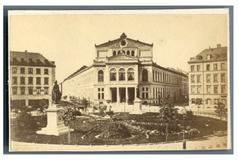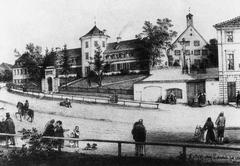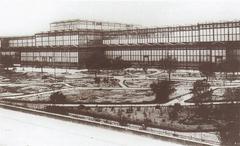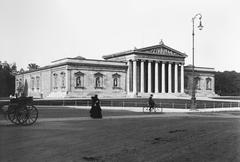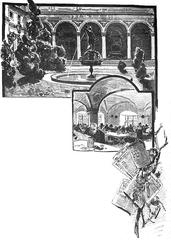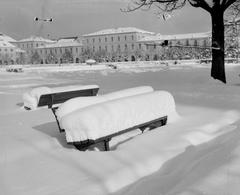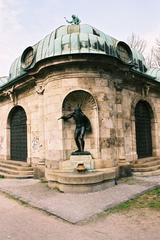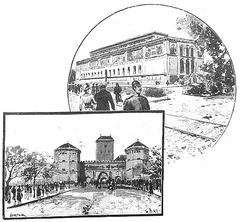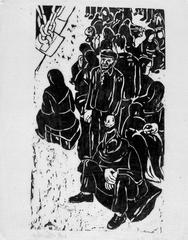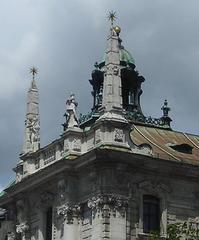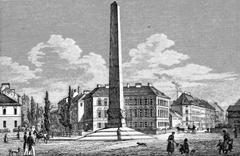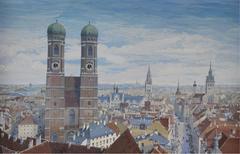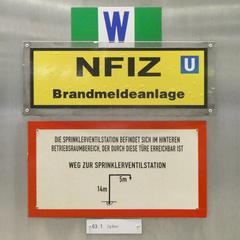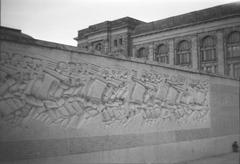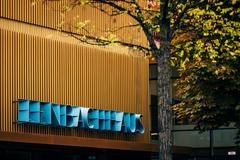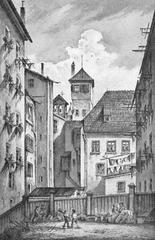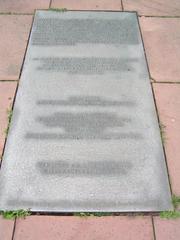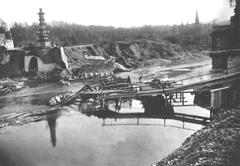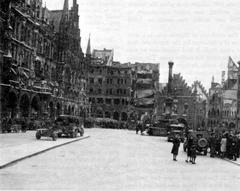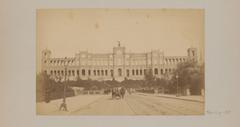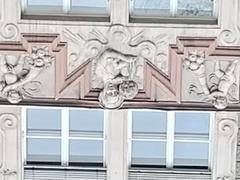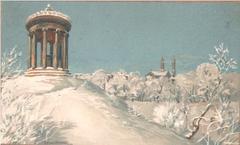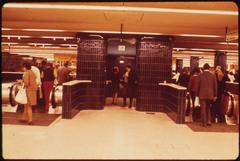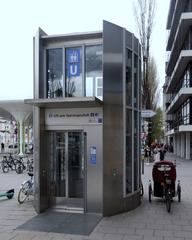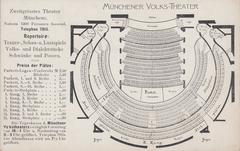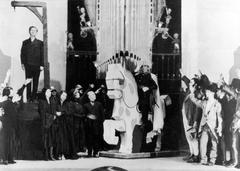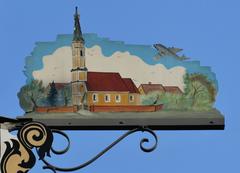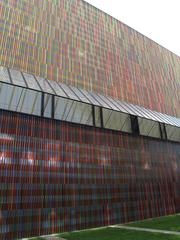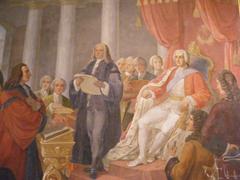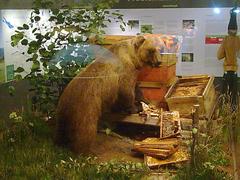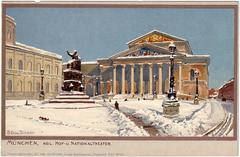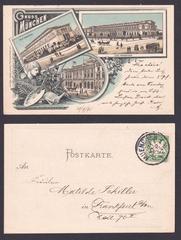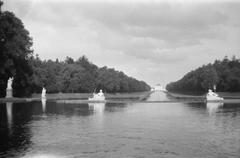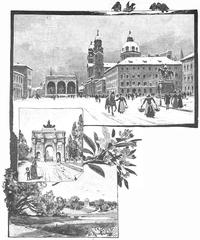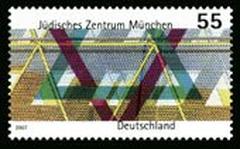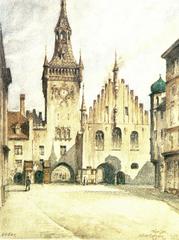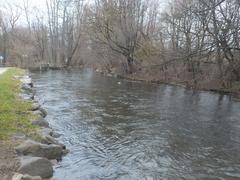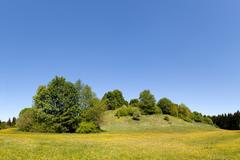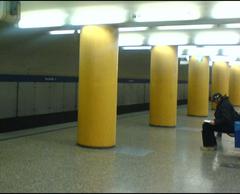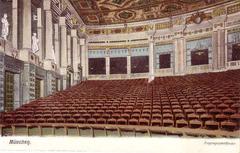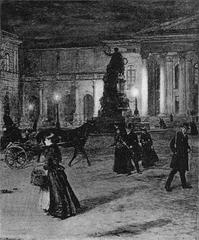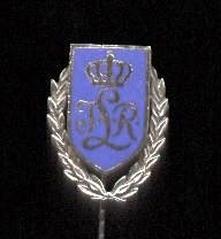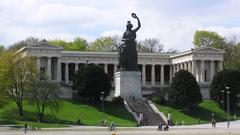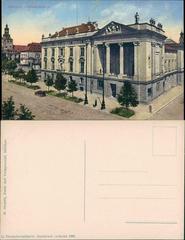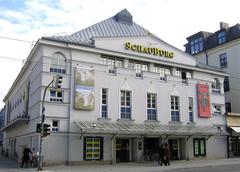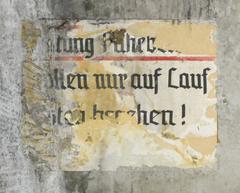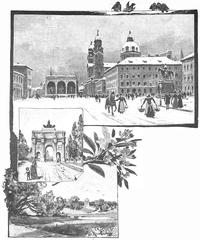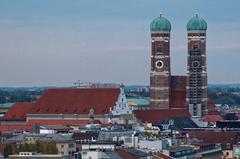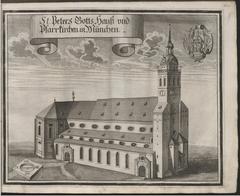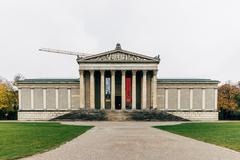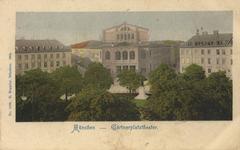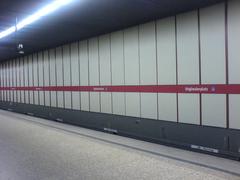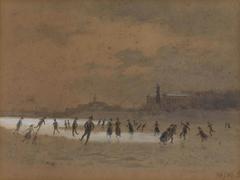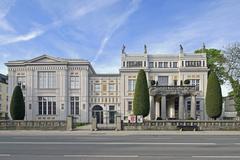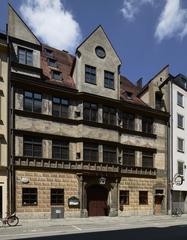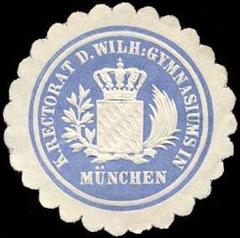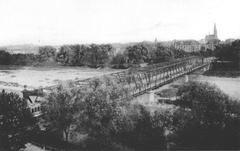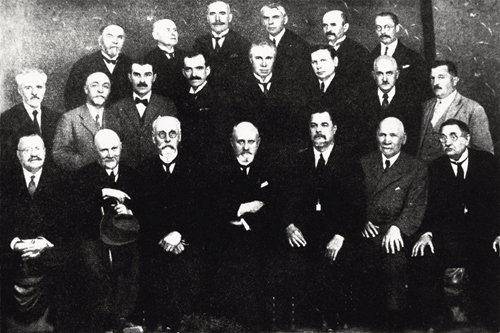
Ukrainian Free University Munich: Visiting Hours, Tickets, and Comprehensive Visitor Guide
Date: 14/06/2025
Introduction
The Ukrainian Free University (UFU) in Munich stands as a symbol of Ukrainian academic freedom, resilience, and cultural preservation in exile. Founded in 1921, it is the world’s only Ukrainian university operating outside Ukraine with the authority to confer doctoral degrees. Today, UFU continues to play a pivotal role in Ukrainian studies and the global academic community, while welcoming visitors interested in history, culture, and education. This guide provides a detailed overview of UFU’s history, visiting information, special events, accessibility, practical travel tips, and highlights of nearby Munich attractions.
Table of Contents
- Introduction
- Historical Overview
- Academic and Cultural Significance
- Visiting the Ukrainian Free University: Practical Information
- Visitor Experience
- Nearby Munich Attractions
- Travel Tips and Amenities
- Frequently Asked Questions (FAQ)
- Conclusion and Call to Action
- References
Historical Overview
Founding and Early Years (1921–1939)
Established in Vienna on January 17, 1921, the UFU was created by Ukrainian intellectuals escaping political repression and the lack of academic freedom in Soviet-occupied Ukraine. The founding council included prominent academics like Prof. Alexander Kolessa and poet Alexander Oles, representing a scholarly elite deeply invested in Ukrainian education. Soon after, UFU relocated to Prague, where it received full academic recognition from the Czechoslovak government, becoming a flourishing center for Ukrainian research and teaching (diasporiana.org.ua, wikipedia.org, encyclopediaofukraine.com).
Wartime Displacement and Munich Re-establishment (1945–1950)
World War II and the Communist takeover of Czechoslovakia forced UFU scholars to flee westward. In 1946, thanks to the efforts of Vadym Shcherbakivsky and others, the university was re-established in Munich, Germany. UFU expanded its faculty with émigré scholars, reached peak postwar enrollment in 1947–48, and became a hub for Ukrainian academic publishing and cultural life (encyclopediaofukraine.com).
Recognition and Growth in Bavaria (1950–1991)
A milestone came in 1950 when the Bavarian Ministry of Education and Religion officially recognized UFU as a private institution authorized to confer doctoral degrees, granting it academic parity with German universities (diasporiana.org.ua). The university expanded its academic programs, organized international conferences, and published over 250 scholarly works, solidifying its place as a cornerstone of the Ukrainian diaspora’s intellectual life (wikipedia.org).
Contemporary Developments (1991–Present)
After Ukraine’s independence in 1991, UFU transformed from a university-in-exile to a specialized graduate institution within the European Union. Ukrainian authorities recognized its degrees, further integrating UFU into the global academic community. Today, private donations and diaspora support sustain the university, which continues to adapt to contemporary challenges, including a surge in enrollment driven by recent political events in Ukraine (wikipedia.org, StandYou, DW).
Academic and Cultural Significance
UFU is the only Ukrainian university outside Ukraine offering graduate-level programs primarily in Ukrainian, encompassing Ukrainian studies, law, history, philosophy, and the social sciences. The university is recognized for:
- Academic Freedom: UFU’s unique environment allows for open intellectual exchange, free from political pressure (DW).
- Cultural Preservation: It serves as a hub for the Ukrainian diaspora, hosting events, lectures, and exhibitions that celebrate and sustain Ukrainian heritage (StandYou).
- International Collaboration: UFU regularly partners with academic institutions across Europe for conferences and research projects (encyclopediaofukraine.com).
- Career and Research Opportunities: Degrees are recognized by the Bavarian Ministry of Culture and support career development in academia and business (StandYou).
Visiting the Ukrainian Free University: Practical Information
Location and Directions
- Main Address: Amalienstraße 38, 80799 Munich, Maxvorstadt district.
- Alternative Address (Administrative/Events): Barellistraße 9A, 80638 Munich, near Nymphenburg Palace (ufu-muenchen.de).
- Public Transport: U-Bahn stations Universität (U3, U6) and Odeonsplatz (U3, U4, U5, U6) are within a 10-minute walk. Trams and buses also serve the area. Plan your journey with the Munich MVV.
Visiting Hours
- Standard Hours: Monday to Friday, 9:00 AM–5:00 PM.
- Appointments: As an academic institution, UFU is not a traditional museum; visits, especially to archives or events, should be arranged in advance. Check UFU’s official website for current schedules and holiday variations.
Tickets and Entry
- General Entry: Free for individual visitors, public lectures, and most cultural events.
- Special Events: Some conferences or exhibitions may require prior registration due to limited capacity.
- Library/Research Access: By appointment only; researchers may need to provide credentials or letters of introduction.
Guided Tours and Events
- Guided Tours: Available by prior arrangement for groups, academic visitors, or during special open days. Contact UFU in advance to book.
- Public Events: UFU hosts academic conferences, lectures, book presentations, and cultural celebrations, especially around Ukrainian national holidays. Check the events page for updates.
Accessibility
- Mobility: UFU buildings offer ramps and elevators; however, as some facilities are historic, it is best to contact the administration beforehand for specific accessibility needs.
- Language: Most programs are in Ukrainian, but many staff members and students speak German and English. English-language support may be available upon request.
Visitor Experience
Photographic Spots and Campus Features
- Architecture: The historic main building features early 20th-century design, providing excellent photo opportunities, especially at the main entrance and interior halls.
- Cultural Displays: Art exhibits and historical memorabilia document UFU’s legacy. Always request permission before photographing inside, especially during classes or events.
Library and Research Facilities
- Library Access: UFU’s library holds extensive Ukrainian-language and historical collections. Researchers must arrange access in advance via UFU’s contact channels.
Nearby Munich Attractions
- Englischer Garten: One of the largest urban parks in Europe, perfect for relaxation.
- Alte Pinakothek, Neue Pinakothek, Museum Brandhorst: Renowned art museums within walking distance.
- Ludwig Maximilian University (LMU): Historic site with the White Rose Memorial (Destination Munich Attractions).
- Viktualienmarkt: Munich’s famous food and crafts market.
- Nymphenburg Palace: Baroque palace accessible from the Barellistraße campus.
Travel Tips and Amenities
- Dining: Maxvorstadt offers a range of cafés, bakeries, and international restaurants. Try local specialties or visit the popular “Der Verrückte Eismacher” for unique ice cream (Happy to Wander Munich Guide).
- Accommodation: Numerous hostels and hotels are nearby, suitable for all budgets.
- Transport: Buy an MVV day pass for unlimited U-Bahn, tram, and bus travel.
- Connectivity: Free Wi-Fi is available on campus and in many local cafés.
- Cash: Some small shops prefer cash or EC cards; ATMs are readily available.
- Safety: Munich is safe, but carry health insurance info and note emergency number 112.
Frequently Asked Questions (FAQ)
Q: What are the visiting hours for the Ukrainian Free University?
A: Monday to Friday, 9:00 AM–5:00 PM. Confirm special hours or event times on the official website.
Q: Is there an entry fee or tickets required?
A: General entry is free. Some events or library access may require prior registration.
Q: Are guided tours available?
A: Yes, but only by advance arrangement or during special events.
Q: Is UFU accessible for visitors with disabilities?
A: Most facilities are accessible, but some historic areas may have limitations. Contact UFU in advance for specific needs.
Q: What languages are spoken at UFU?
A: Ukrainian is primary, but German and English are also widely used.
Q: Can I take photographs inside UFU?
A: Ask for permission, especially during classes or events.
Q: How do I reach UFU by public transport?
A: Use U-Bahn stations Universität or Odeonsplatz, or nearby tram and bus routes.
Conclusion and Call to Action
The Ukrainian Free University in Munich is a testament to academic perseverance, cultural vitality, and the enduring spirit of the Ukrainian diaspora. Whether you are a scholar, traveler, or culture enthusiast, UFU offers a distinctive experience through its history, educational programs, and vibrant community events. Plan your visit by checking UFU’s visiting hours and event calendar, and enrich your stay by exploring the surrounding cultural landmarks of Munich.
For seamless planning and live updates, download the Audiala app, visit the UFU official website, and follow UFU on social media for the latest news and event details.
References
- diasporiana.org.ua
- encyclopediaofukraine.com
- wikipedia.org
- StandYou
- DW
- UFU Official Website
- Destination Munich Attractions
- Happy to Wander Munich Guide
